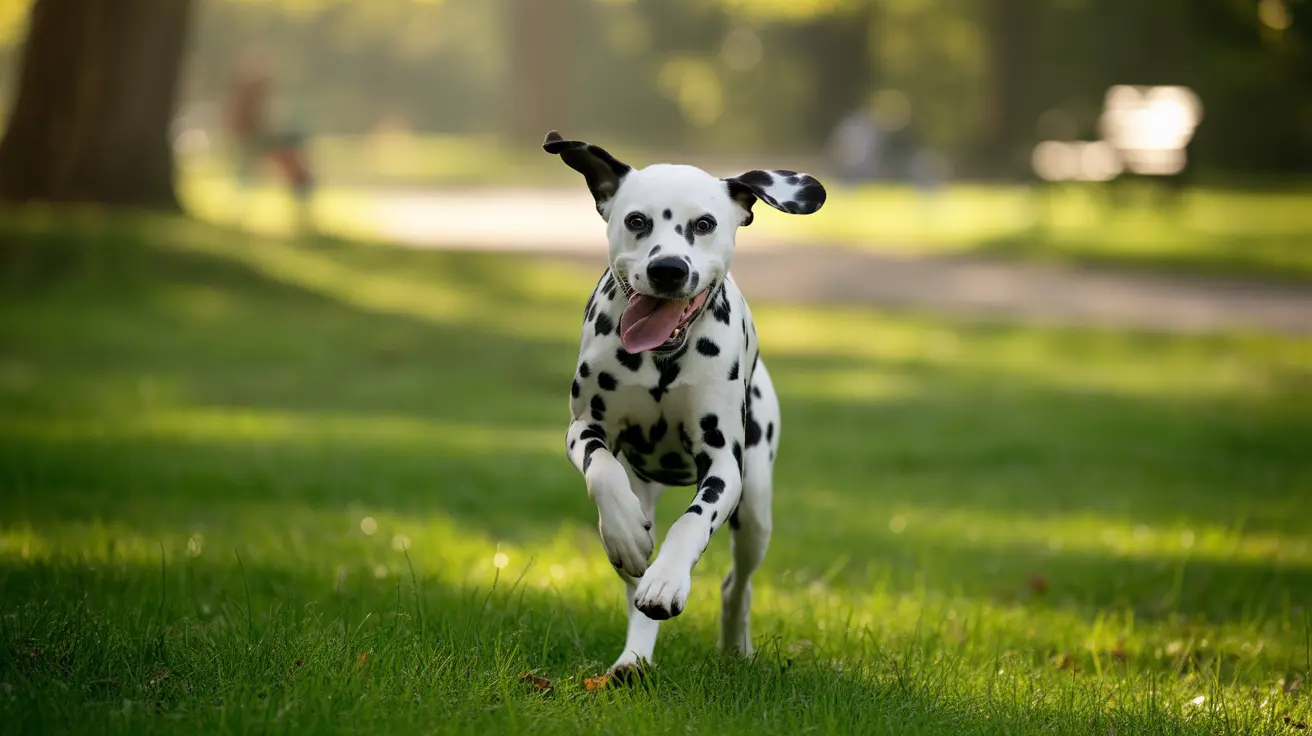Introduction
Dalmatians, with their iconic spotted coats and energetic personalities, are beloved companions known for their distinctive appearance and athletic nature. Understanding how long Dalmatians live is crucial for potential and current owners planning to welcome these unique dogs into their families. With proper care and attention, these striking dogs typically enjoy lifespans ranging from 11 to 13 years, though some can live even longer with exceptional care.
In this comprehensive guide, we'll explore the factors that influence a Dalmatian's lifespan, common health considerations, and proven strategies to help your spotted friend live a longer, healthier life.
Average Lifespan of Dalmatians
Recent studies indicate that Dalmatians typically live between 11 and 13 years, with some individuals reaching up to 16 years under optimal conditions. A 2024 UK study revealed an impressive average lifespan of 13.2 years, surpassing both purebred and crossbred averages. This positions Dalmatians favorably among medium to large-sized dog breeds.
When compared to other breeds, Dalmatians' longevity is comparable to Beagles (12-15 years) and Standard Poodles (10-18 years), though they generally don't live as long as smaller breeds like Chihuahuas.
Key Health Factors Affecting Dalmatian Longevity
Genetic Health Considerations
Dalmatians face several breed-specific health challenges that can impact their lifespan. The most significant include:
- Hyperuricosuria (elevated uric acid levels)
- Deafness (affecting up to 30% of the breed)
- Hip dysplasia
- Skin conditions
- Thyroid disorders
Diet and Nutrition
A proper diet is crucial for Dalmatian health, particularly due to their unique uric acid metabolism. These dogs require:
- Low-purine foods to prevent bladder stones
- Constant access to fresh water
- Carefully monitored portions to maintain healthy weight
- Special consideration for protein sources
Maximizing Your Dalmatian's Lifespan
Exercise and Mental Stimulation
Dalmatians are high-energy dogs requiring substantial physical activity and mental engagement:
- At least two hours of daily exercise
- Regular training sessions
- Interactive play and mental stimulation
- Opportunities for running and swimming
Preventative Healthcare
Regular veterinary care plays a vital role in extending your Dalmatian's life:
- Annual health check-ups
- Regular hearing and vision tests
- Dental care and cleaning
- Vaccinations and parasite prevention
Frequently Asked Questions
How long do Dalmatians typically live, and what factors influence their lifespan?
Dalmatians typically live 11-13 years, with some reaching 16 years. Their lifespan is influenced by genetics, diet, exercise, preventative healthcare, and management of breed-specific health conditions.
What common health issues affect Dalmatians and how can they impact their longevity?
The main health issues affecting Dalmatians include hyperuricosuria, deafness, skin problems, and hip dysplasia. Early detection and proper management of these conditions can significantly impact their longevity.
How can I help my Dalmatian live a longer and healthier life through diet and exercise?
Provide a low-purine diet, maintain proper weight, ensure constant access to fresh water, and provide at least two hours of daily exercise. Regular veterinary check-ups and prompt attention to health issues are also essential.
Are there specific genetic conditions in Dalmatians that owners should be aware of?
Yes, Dalmatians are prone to hereditary conditions including deafness, hyperuricosuria, and skin sensitivity. Working with reputable breeders who conduct health screenings can help minimize these risks.
What makes the Dalmatian's lifespan compare to other dog breeds of similar size?
Dalmatians have a comparable lifespan to other medium-large breeds, typically living 11-13 years. Their longevity can be enhanced through proper care, though they generally don't live as long as smaller breeds.
Conclusion
While Dalmatians face certain breed-specific health challenges, their lifespan can be optimized through attentive care, proper nutrition, regular exercise, and preventative healthcare. Understanding and addressing their unique needs allows these beloved spotted companions to live full, healthy lives well into their senior years.






